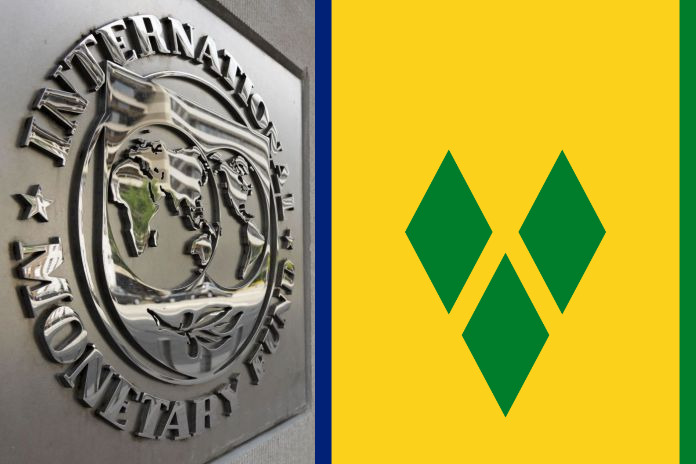Saint Vincent and the Grenadines ‘economy rebounded strongly in 2022–23’ says IMF

*** The timing of the report predates hurricane Beryl.
Under Article IV of the IMF’s Articles of Agreement, the IMF holds bilateral discussions with members, usually every year. A staff team visits the country, collects economic and financial information, and discusses with officials the country’s economic developments and policies. On return to headquarters, the staff prepares a report, which forms the basis for discussion by the Executive Board.
The staff report reflects discussions with the authorities during April–May 2024 and is based on the information available as of June 14, 2024. It focuses on St. Vincent and the Grenadines’ medium-term challenges and policy priorities and was prepared prior to the hit of Hurricane Beryl on July 1. It, therefore, does not cover the impact of the hurricane or the related policy response, which has since become the overarching near-term priority. Based on information available until July 11 and covered in the Staff Supplement, the thrust of the staff appraisal remains unchanged.
The Executive Board takes decisions under its lapse-of-time procedure when the Board agrees that a proposal can be considered without convening formal discussions.
USA / ST VINCENT- On July 22, 2024, the executive board of the International Monetary Fund (IMF) concluded the Article IV consultation with St Vincent and the Grenadines and endorsed the staff appraisal without a meeting on a lapse-of-time basis.
The economy rebounded strongly in 2022–23 from the pandemic and 2021 volcanic eruptions, returning to pre-pandemic output levels. Growth reached 3.1 percent in 2022 and is estimated to have accelerated to 5.8 percent in 2023. This was supported by large public and private investment and a robust recovery of tourism, which were partly offset by a drop in agriculture due to lingering effects from volcanic eruptions and the historic high temperature in 2023. Inflation has subsided from its peak.
Formal employment surpassed pre-pandemic levels in 2022 and is estimated to have continued to grow in 2023. Nevertheless, recent compounded shocks have left a lasting negative impact on employment of young men, and female labor force participation remains relatively low. As regards public finances, while non-interest current spending was significantly reduced, the fiscal deficit widened in 2022–23 largely due to the phasing of port-related spending and temporary factors.
Public debt declined from its peak in 2021 to about 87 percent of GDP in 2023 but remains well above pre-pandemic levels. The external position improved in 2022–23 supported by recovery in goods exports and tourism receipts. The financial system remains sound.
Growth is projected at 4.9 percent in 2024, supported by continued growth in tourism and strong investment on infrastructure, particularly the port project. Inflation is projected to ease to 2.5 percent by end-2024, on account of lower imported inflation.
The authorities are balancing the need to support inclusive and resilient growth and maintain fiscal prudence, with both overall and underlying (excluding pandemic-, volcano, and port-related spending) primary balances projected to improve significantly in 2024, to -4.6 and 2.1 percent of GDP, respectively. They also remain committed to reaching the regional debt ceiling and the medium-term fiscal strategy set out in the 2021 Rapid Credit Facility.
The outlook is subject to downside risks stemming primarily from an abrupt global slowdown, commodity price volatility, and potential delays in investment projects. In addition, the economy is facing significant challenges from a rapidly ageing population and the threat of natural disasters and climate change, amid the still high public debt. On the upside, stronger-than-expected tourism development and agriculture sector recovery could enhance growth and improve the external position.
Read the executive board assessment here.
Source: caribbeannewsglobal.com

